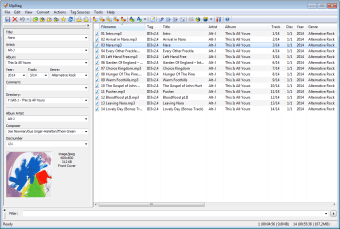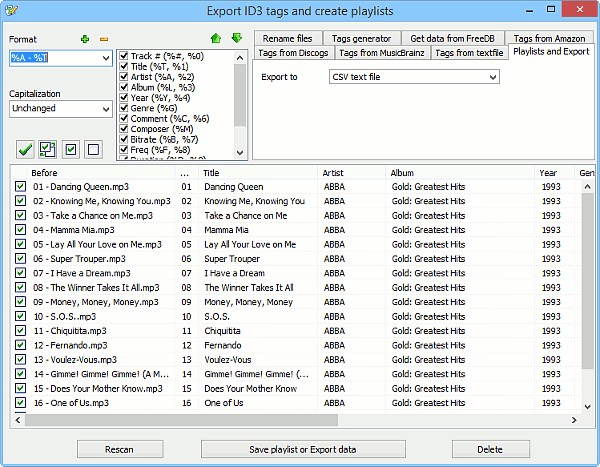
The base concept behind all converters in Mp3tag is the so called format string, which describes a pattern (or template) of a filename or a line in a tag-list file. These functions offer advanced display and converting options and are to be used in combination with format strings and placeholders. m3u playlist of some music files and add MP3Tag to the Open With context menu. The issue with that is the permissions for the WindowsApps folder still comes into it. Just make sure throughout the process that you always have the same number of songs selected in MP3Tag, as rows in excel, and lines in the text files (easy to check with Notepad++). Mp3tag provides a variety of possibilities to get tag information from parts of the filename or rename files based on the information stored in the tag of a file. Mp3tag offers various built-in scripting functions, which can be used at various places in the program. The dev could probably find a way to do this via a single context menu item.

use txt>tag with the exported txt file from excel to the same selection (in the navigation window) of songs you used in 1).
#Mp3tag path to tag code
The above code seems to work pretty well though.
#Mp3tag path to tag full
The Mp3tag column 'TagRead (TagTypes)' displays the information, what tag-types have been detected by Mp3tag in the current media file, and what tag-type has been currently read by Mp3tag. Hmm, not quite sure about how this would work but I did create an extra column in Mp3Tag which displays the current full path length in decimal, as per your tip in one of the other threads.

Am also using the txt>tag conversion for changing a tag value (ALBUM in my case) across thousands of files in a complex directory structure.


 0 kommentar(er)
0 kommentar(er)
